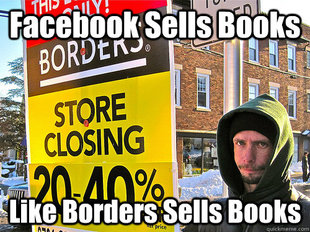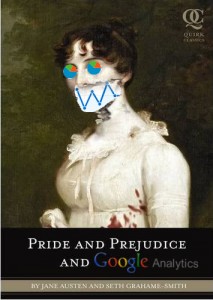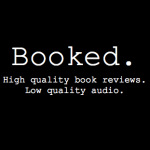I just finished playing through a full 15 hour game on Google Stadia. Did the experience turn me into a Stadia believer? This is the longest single-game commitment I’ve made to Stadia. I learned a few things along the way about whether or not Stadia works and if it’s a good option for anyone. In this video I give my thoughts on the controller, the impact of a strong internet connection, the Stadia UI (user interface), and more.
Tag Archives Caleb Ross
I want to help you love video games even more. Sometimes I do that by reviewing books about video games. Today is one of those sometimes, because I’m taking a look at the first issue of A Profound Waste of Time.
The fine fellows at Booked Podcast, Robb Olson and Livius Nedin invited me over to discuss the reissue of Chuck Palahniuk's Invisible Monsters. Here's a bit from the episode description: Booked reviews Invisible Monsters REMIX by Chuck Palahniuk, with special guest host Caleb J. Ross. It’s more of a book discussion than a review this episode, since this is not technically a new-new book, and there’s a good chance that lots of people listening will have already read it. So we talked a bit about the book, Palahniuk, and (of course) felching. As you do when you talk about Invisible Monsters. Click here to listen to the latest Booked Podcast episode, featuring Caleb J. Ross.
Preorder details for my new novel, I Didn't Mean to be Kevin are forthcoming. Until then, get all excited with this synopsis. Tis the season for Caleb, more Caleb, and a little bit of Jesus (if there's time).
 (part of my ongoing Search Engine Optimization for Authors series[ref]I understand that paid search ads aren’t traditionally umbrellaed under search engine optimization. However, because tracking and optimization is involved, I’m including it in the series[/ref])
Part of being a great author-marketer is knowing how to filter promotion time wastes from time worthwhiles. Some options are simple to filter. “Should I do a Goodreads.com giveaway to attract potential readers?” Yes (all it costs is the price of a few copies of a book to receive interest from hundreds of readers). “Should I rent a billboard for a month?” No (billboards offer either 1) travel-oriented products/services or 2) products with a high profit margin). Some options aren’t so simple. And in the case of the Facebook ad, prominence adds to the should I or shouldn’t I debate. Well, I’m here to help.
(part of my ongoing Search Engine Optimization for Authors series[ref]I understand that paid search ads aren’t traditionally umbrellaed under search engine optimization. However, because tracking and optimization is involved, I’m including it in the series[/ref])
Part of being a great author-marketer is knowing how to filter promotion time wastes from time worthwhiles. Some options are simple to filter. “Should I do a Goodreads.com giveaway to attract potential readers?” Yes (all it costs is the price of a few copies of a book to receive interest from hundreds of readers). “Should I rent a billboard for a month?” No (billboards offer either 1) travel-oriented products/services or 2) products with a high profit margin). Some options aren’t so simple. And in the case of the Facebook ad, prominence adds to the should I or shouldn’t I debate. Well, I’m here to help.
 How many times did readers download your sample chapters? How many times did readers view your new book trailer? How many times did your website visitors click a button to buy one of your books? How many times did someone click a link to read one of your stories posted at another website? All of these items can be tracked using Event Tracking in Google Analytics.
What is Event Tracking? I’ll leave the details up to Google itself, but for our purposes think of Event Tracking as a second, deeper level of website analytics. Most of you are probably using your analytics program primarily to track how users interact with your website on a macro level (how many visits, most popular pages, how long visitors stay, etc). Event Tracking allows a micro level of tracking, where actual clicks and downloads on specific pages can be tracked.
Anywhere a user can click, Event Tracking can be used. Let’s look at an example that an author could definitely use.
How many times did readers download your sample chapters? How many times did readers view your new book trailer? How many times did your website visitors click a button to buy one of your books? How many times did someone click a link to read one of your stories posted at another website? All of these items can be tracked using Event Tracking in Google Analytics.
What is Event Tracking? I’ll leave the details up to Google itself, but for our purposes think of Event Tracking as a second, deeper level of website analytics. Most of you are probably using your analytics program primarily to track how users interact with your website on a macro level (how many visits, most popular pages, how long visitors stay, etc). Event Tracking allows a micro level of tracking, where actual clicks and downloads on specific pages can be tracked.
Anywhere a user can click, Event Tracking can be used. Let’s look at an example that an author could definitely use.
 (Announcing a new post category: Search Engine Optimization for Authors. Well, it’s new in that I’ve finally given a name to it, but as you can see by clicking over to the category, there are a few past posts that fit within this category)
If you’ve read Christina Katz’s fantastic Get Known Before the Book Deal, or have been at all concerned about building that illusive “platform” so many industry types talk about then either 1) you are an author with a career somewhere between beginning and burgeoning, or 2) you’re interested in the publishing industry for slightly different, though I’m sure equally masochistic, reasons. Either way, one of the cornerstones of author presence in our Web 2.0 world (aren’t we at Web 2.1 yet, at least?) is the blog. Despite its cornerstone status, many authors aren’t sure where to begin. Or worse, they take the leap into bloggery without considering how to leverage such a forum for their own career goals (okay, time to put on the Purina checkerboard slacks, you sleazy salesman).
(Announcing a new post category: Search Engine Optimization for Authors. Well, it’s new in that I’ve finally given a name to it, but as you can see by clicking over to the category, there are a few past posts that fit within this category)
If you’ve read Christina Katz’s fantastic Get Known Before the Book Deal, or have been at all concerned about building that illusive “platform” so many industry types talk about then either 1) you are an author with a career somewhere between beginning and burgeoning, or 2) you’re interested in the publishing industry for slightly different, though I’m sure equally masochistic, reasons. Either way, one of the cornerstones of author presence in our Web 2.0 world (aren’t we at Web 2.1 yet, at least?) is the blog. Despite its cornerstone status, many authors aren’t sure where to begin. Or worse, they take the leap into bloggery without considering how to leverage such a forum for their own career goals (okay, time to put on the Purina checkerboard slacks, you sleazy salesman).

